Moira Albert knows what she likes about D.C. West End: “Nights are calm, yet everything’s handy.”
Albert has rented in the neighborhood for eight years, living near Trader Joe’s and the West End branch of the D.C. Public Library.
She said she knows a few neighbors on her floor and occasionally chats at the dog park, usually about pets or the weather.
“People are nice,” she added, “just busy.”
The West End is known for clean sidewalks, safe streets and easy access to stores, schools and transit. But many residents describe it as a neighborhood where comfort has replaced connection — a place that functions smoothly but feels impersonal.
Or, as Kelly Lawson, another eight-year renter, said: “It’s easy to live here. But it’s hard to really know people.”
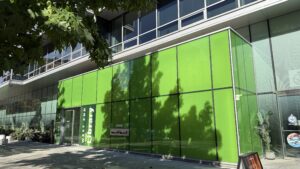
That pattern is common. Residents interviewed for this story consistently praised the neighborhood’s safety and convenience while describing limited interactions with neighbors and an area that grows unusually quiet after dark.
“Yes, walkable, well-kept, stable,” said a 20-year homeowner who asked not to be named, when asked why he likes the neighborhood.
“Everything works here — you don’t have to think about safety, ” he added.
But when describing his social ties, he mentions only brief “elevator chats” with neighbors in his building.
Residents pointed to the concentration of large apartment buildings and frequent turnover as reasons it can feel transient. Many of the units are rented rather than owned, and neighbors often move out before lasting ties form.
While daily life often unfolds behind closed doors, one public space still brings West End residents together: the West End library.
“We welcome people across all income levels and beliefs,” said Rob Schneider, branch manager at DCPL’s West End branch. He said the library’s size and location make it one of the few public places where neighbors actually might meet.
The branch offers study areas, meeting rooms and a variety of community programs, such as book clubs, workshops and children’s story times.
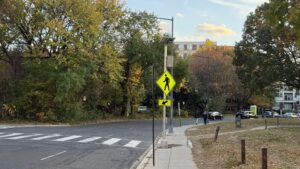
Schneider said that some visitors from outside the neighborhood also stop by to use the library’s computers or attend events. The library’s recurring programs appear to offer small opportunities for neighbors to interact.
Beyond the library, neighborhood organizations also play a role in keeping residents connected.
The West End Citizens Association (WECA), which represents both the West End and Foggy Bottom, said in an email that the two areas remain closely linked.
“The neighborhood feels cohesive and distinct from Georgetown to the west, Dupont Circle to the north and downtown to the east,” Mary Kahlow, WECA’s secretary treasurer, wrote.
The tranquility even draws non-residents.
A George Washington University graduate student, Justin Kent, who occasionally visits the West End on weekends, said he chooses to get off the bus here specifically for the calm.
“Sometimes I choose to drop here for a walk. It is quiet on weekends,” he said. He said he notices a different energy compared with nearby Foggy Bottom.
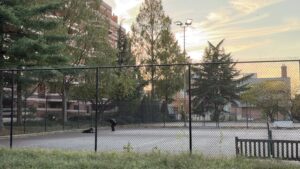
“It feels calm, almost too calm,” he said.
Even satisfied residents said the neighborhood could do more to bring people together. They said they would welcome more structured opportunities to meet neighbors.
“Regular events — monthly market, book club, outdoor movie nights — to spark neighbor interaction,” Lawson said. She added that she rarely meets new people because she didn’t know if there were any events.
“We just need small excuses to talk to each other,” she said. “Otherwise, everyone goes their own way.”
Neither the West End DC Community Association nor Advisory Neighborhood Commission 2A returned requests for comment.

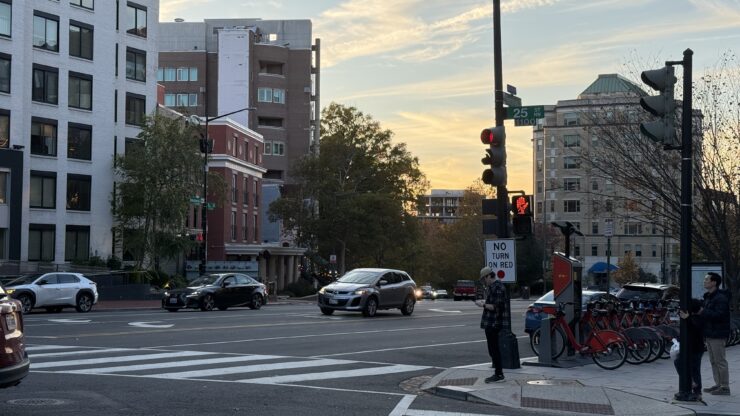
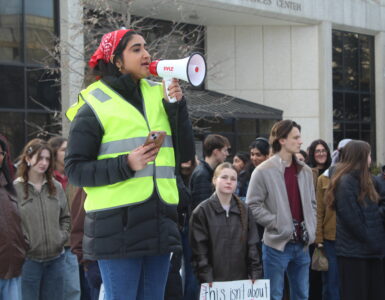












Add comment